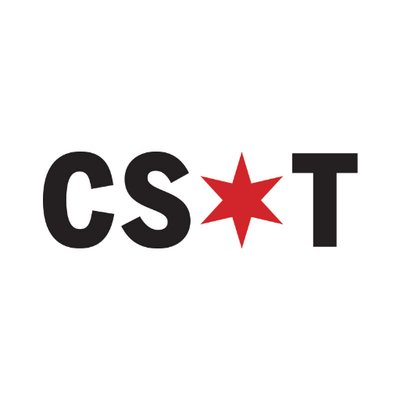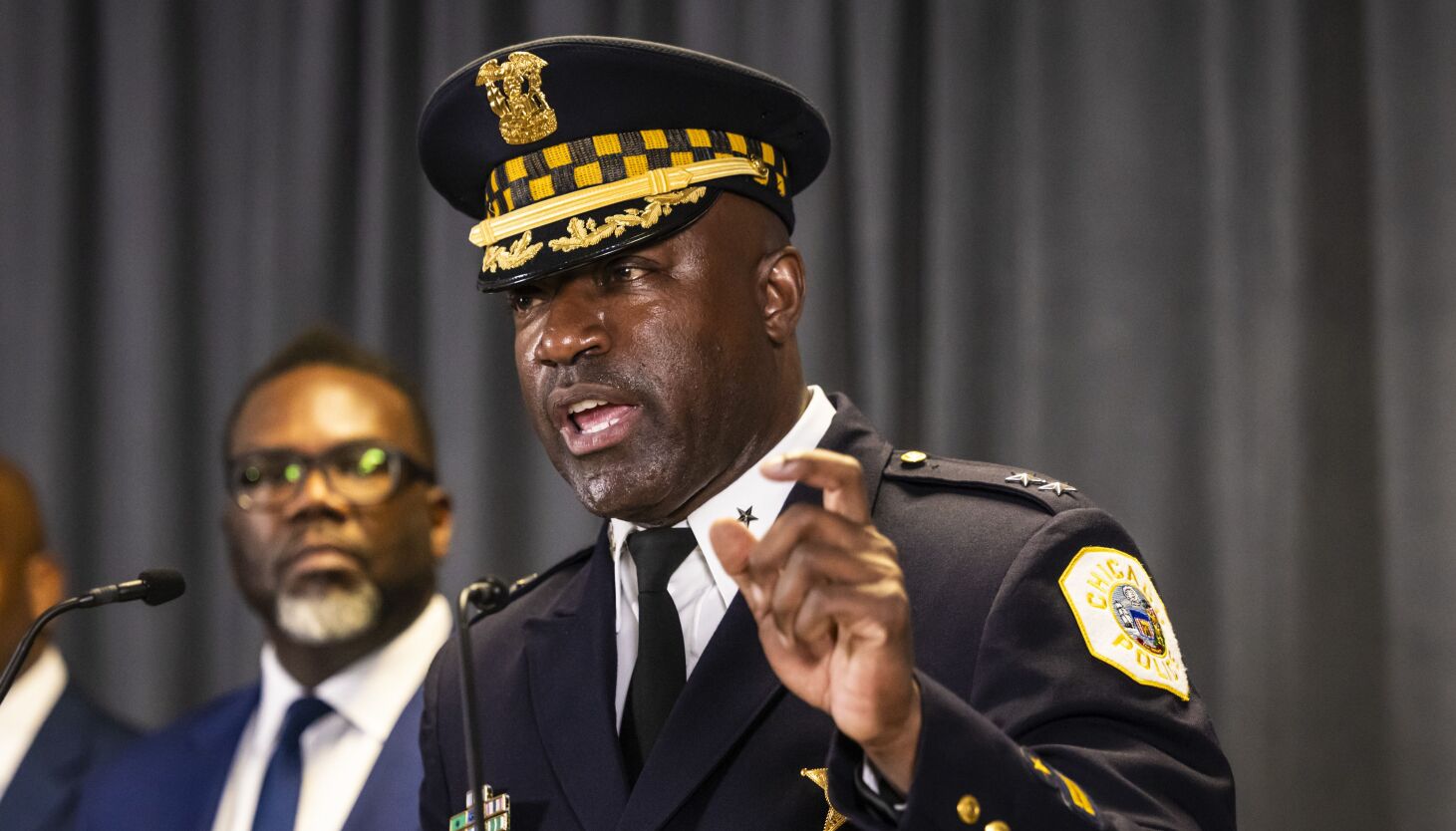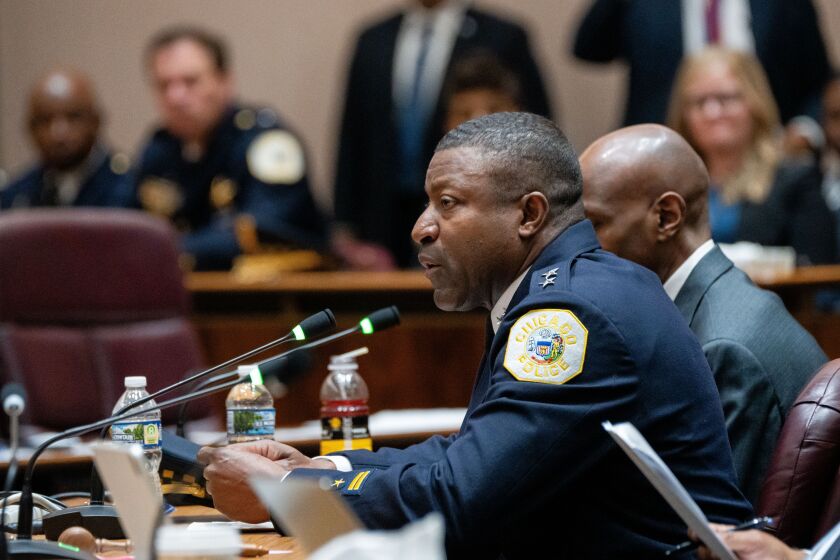



Larry Snelling’s days in the $260,004-a-year hot seat reserved for Chicago’s police superintendent probably won’t get any better than Wednesday.
The Chicago City Council is poised to unanimously confirm Mayor Brandon Johnson’s choice of a “son of Englewood,” as alderpersons from across the city sing his praises as the antithesis of his unpopular predecessor, David Brown.
It’s a good thing Snelling is unlikely to let the praise go to his head after impressing the mayor, the Police Committee and the Community Commission for Public Safety and Accountability with his humility.
He’s now on the clock to confront the alarming surge of robberies and vehicular theft — some of those violent crimes in broad daylight — that has residents of North Side neighborhoods like Bucktown, Wicker Park, Lincoln Park, Old Town and Lakeview up in arms and fearing for their personal safety.
That includes a viral video posted Tuesday, showing two men on foot, one of them wearing a mask, brutally beating a man and dragging him across a Bucktown alley in the 2000 block of North Damen after the victim refused to surrender his belongings.
The predators then walked away from the scene, seemingly without fear of being chased or caught. That’s even though a motorist at the foot of the alley watched and, perhaps even recorded, the brutal beating.
Year-to-date motor vehicle thefts are up 86% citywide over the same period last year and 227% above where they were four years ago. . Robberies are up 24%. Thefts are up 8%. Murders and shooting are down by 11% and 13% respectively.
In the Shakespeare District that includes Bucktown, Wicker Park and parts of Logan Square, robberies are up 53% over last year and 93% higher than in 2019. Motor vehicle thefts in the Shakespeare District are up by 150%.
Robberies are also up 13% this year in the Near North District (18th), which includes a large portion of Lincoln Park, data shows. That number jumps to 34% when compared to 2021.
In the Town Hall District (19th), which includes Lake View, robberies remain at the same level as last year, the data shows. But those 291 robberies mark a 54% increase from the same point in 2021.
A rash of robberies in and around the DePaul University’s Lincoln Park campus has prompted the university to require its students, faculty and employees to start carrying their ID’s on campus.
Johnson has insisted there is a “strategic plan” in place to stop the robbery surge, but local residents haven’t seen evidence of it.
Snelling, 54, is the CPD’s former counterterrorism chief who spent much of his police career at the police academy. He trained many current officers with a tough-love, don’t-let-them-fail approach that earned their trust and admiration.
That’s why he was among three finalists chosen by the civilian oversight panel and why Johnson picked him for an appointment that can make or break any Chicago mayor.
During his inaugural news conference and again at his love-fest of a confirmation hearing, Snelling promised to improve officer wellness and training, overhaul promotions and reduce violent crime by remembering “forgotten” crime victims and rebuilding shattered trust between citizens and police.
It showed again why Johnson views him as the best hope to improve police morale and reverse a mass exodus of officers that has left the Chicago Police Department with nearly 1,700 fewer officers than just four years ago.
“When these officers feel good about themselves, they feel good about the department. When they feel good about the job that they’re doing, they’ll feel good and great with the community. In order for our officers to love someone else, we have to love them,” Snelling said at his first news conference.
Loving officers and paying attention to their mental health means not saddling them with excessive amounts of overtime and canceled days off, Snelling said then.
They’re not “robots ... made on a conveyor belt. … They’re human beings,” he said, with wives, husbands, children and elderly parents and grandparents.
“We have to be cognizant of what we’re doing to these officers when we’re canceling days off. We have to give them notice when that happens,” Snelling said then.
“The things that are said to these officers now, the disrespect — that’s huge for our officers. How do they get over that? We have to make sure that we’re providing them with everything that we can provide them with so that they’re well and they can get over the hump of not being respected most times or seeing death. Our officers are resilient, but we have to give them more to continue to be resilient.”
Snelling has argued emphatically that training Chicago police officers should not simply be an exercise in checking boxes to comply with a federal court consent decree outlining required CPD reforms.
“When we do that, we lose the quality in that training. Officers want good training. And when they get it, they want more of it. However, if we’re just looking to get officers through 40 hours of training, then what we’re doing is we’re putting officers through training, but we’re not training officers,” Snelling said.
Charlie Beck, the former Los Angeles police chief who served as Chicago’s interim superintendent, has advised Snelling to “work on morale” by getting rid of merit promotions that he abolished only to have his successor, David Brown, restore them.
Snelling, whose meteoric rise through the ranks benefited from two merit promotions, apparently disagrees.
“Merit promotions will stay. There’ll be a more stringent process. To be totally honest, I would like to see the entire promotional process changed to take merit into account for promotion and not just a test. This will give everybody a great opportunity of being promoted,” he said.
Johnson has vowed to listen to, and collaborate with, his new superintendent.
That promise will be put to the test when it comes to his campaign promise to eliminate the ShotSpotter gunshot detection technology.
Johnson campaigned on a promise to stop using ShotSpotter, but signed an $11 million extension after taking office. Snelling defended the technology in a November 2021 council committee hearing.

Larry Snelling, Chicago Mayor Brandon Johnson’s pick for Chicago police superintendent, speaks during a Committee on Police and Fire meeting at City Hall on Friday.
Pat Nabong/Sun-Times
Snelling’s forthrightness and humility was evident during last week’s confirmation hearing.
In his opening statement, Snelling talked about the picture of himself as a boy growing up in Englewood that he keeps in his office to remind him of “where I’ve come from and where my heart is planted.”
His willingness to stand behind the troops was evident when he defended how officers handled themselves during the demonstrations and looting after the 2020 murder of George Floyd.
That’s even after the inspector general’s blistering critique of concluded CPD was “outflanked and unprepared” for problems it should have anticipated. Rank-and-file officers were “left to high-stakes improvisation without adequate supervision or guidance,” according to the inspector general.
“I saw what they dealt with. I saw the names that they were called. The yelling, the screaming. I saw the 16 hours they worked, dehydrated, hungry, sleep-deprived. They kept their cools. They responded the way the city needed them to respond to stop the city as a whole from burning down,” he said.
“They were taunted, and then they went home, and they got up and came back to work the next day to do it all over again,” Snelling told the Police Committee last week.
